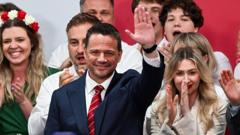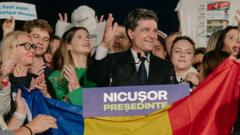As younger cardinals engage in the voting for a new pope, the elder cardinals offer valuable insights from their experiences and observations during the conclave proceedings in Vatican City.
Insights from Non-Voting Cardinals During Papal Conclave

Insights from Non-Voting Cardinals During Papal Conclave
Older cardinals share their perspectives on the papal election process while observing the younger electing members.
While the younger cardinals are actively engaged in selecting a new pope via multiple rounds of voting in Vatican City, their older counterparts—those aged 80 and above—are unable to cast their votes but remain observant and vocal about the proceedings. Having attended the conclave's preparatory meetings, these non-voting cardinals offer their reflections on the potential candidates and the processes at play.
Cardinal Gianfranco Ravasi, an 82-year-old from Italy, expressed admiration for Cardinal Jean-Marc Aveline from Marseille, who is regarded as a viable candidate. Notably, Ravasi praised Aveline's remarkable Italian language skills, highlighting the impact of Aveline's presentation. Similarly, Cardinal Fridolin Ambongo, 65, the archbishop of Kinshasa, delivered a noteworthy speech that also caught Ravasi’s attention.
During the conclave, participating cardinals reside at the Casa Santa Marta, which serves as their guesthouse. Cardinal Domenico Calcagno, at 82 and an elector for Pope Francis, spoke about the significance of informal meals where ideas and assessments are exchanged freely among the cardinals. This fluid interaction could be pivotal in shaping the direction of their votes.
The conclave involves intense voting sessions, with cardinals engaging in four rounds each day until one candidate secures a two-thirds majority. Outcomes are indicated by smoke signals emitted from a chimney above the Sistine Chapel—white smoke denoting a new pope and black smoke indicating continued deliberations. Cardinal Calcagno explained that the initial ballot serves as a trial, guiding future votes as preferences evolve.
In the midst of this serious atmosphere, cardinals maintain a sense of community outside the voting sessions, with some opting for quiet prayer while others engage in discussions, facilitating connections that enhance their understanding of each other’s perspectives across various nations. The conclave serves not only as a selection process but as a gathering of rich theological discourse among the Church's leaders.






















